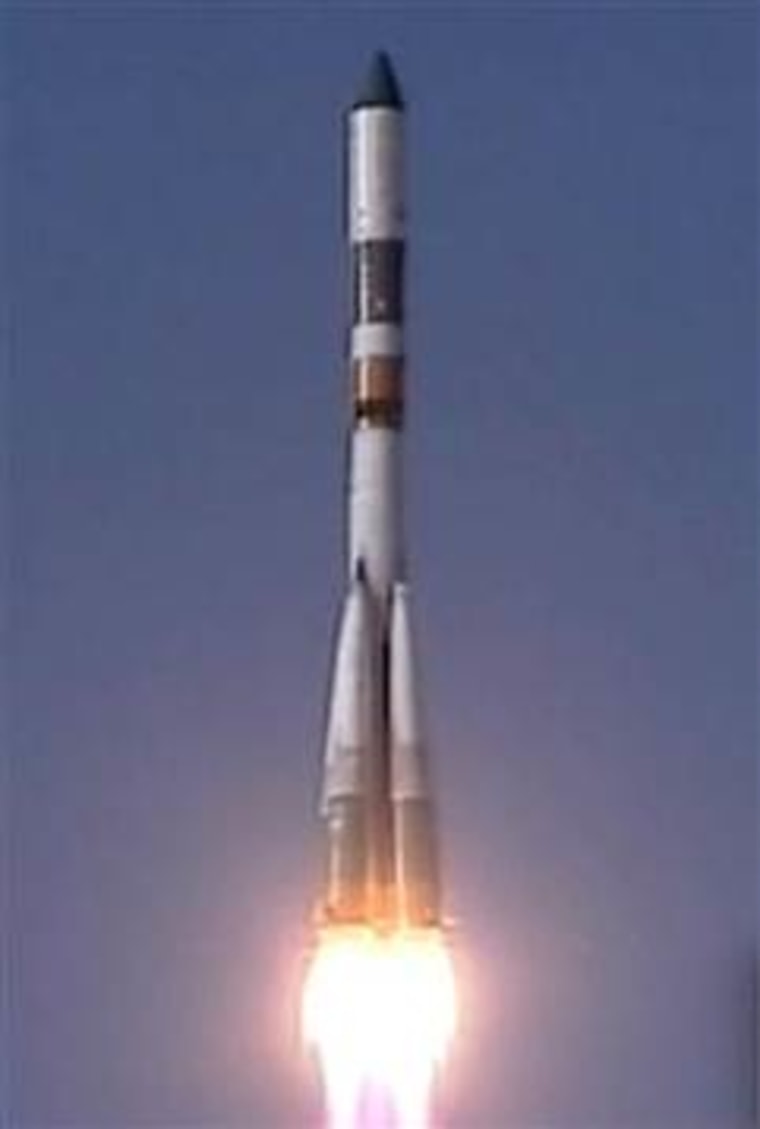Uncertainty clouded International Space Station operations on Thursday after an unmanned Russian supply mission for six astronauts in orbit crashed, unnerving NASA and others who rely entirely on Moscow to ferry crews.
Russia's space agency has kept quiet on its plans and set up a commission to study the crash. But astronauts, experts and foreign space officials said missions should be grounded for the near future until a thorough investigation can help calm fears.
Coming on the heels of a series of costly botched launches, Wednesday's loss of the unpiloted craft, which caught fire in the sky before plummeting to Siberia, was a major embarrassment for Russia's industry and sparked a flurry of criticism at home.
Prime Minister Vladimir Putin ordered an overhaul of safety checks on Russia's rockets; a leading pro-Kremlin lawmaker said the lower house will review whether "systemic problems or just bad luck" were to blame for the string of failures; while media reports put the cumulative recent losses at over $553 million.
Meanwhile, The Associated Press reported Thursday that Russian helicopters searched for the wreckage of the unmanned spaceship that crashed and exploded in a forested area in Siberia.
Russia's General Prosecutor's Office said that about 40 lumberjacks were working in the thick forest of where the Progress ship blew up with a thundering boom, AP reported, and Choisky district administration told the Itar Tass news agency that the lumberjacks returned to their villages safely.
The unpiloted Soyuz-U rocket, which fizzled out five minutes after blasting off from the Baikonur launch pad, closely resembles Russia's Soyuz-FG model used to transport astronauts to the orbital station in the absence of a U.S. shuttle.
The next space station crew launch, which industry sources and foreign officials say will now be postponed from Sept. 22, was to be the first since the U.S. space agency ended its 30-year shuttle program in July.
"For sure it has raised jitters," said Rene Pischel, head of the Moscow branch of the European Space Agency, one of Russia's 15-nation partners in the orbiting station.
"The reason for that is the same launcher is being used for manned launches and in addition to that, you have this sequence of failures. ... That of course makes everybody very cautious."
A NASA official, speaking on condition of anonymity, said there was uncertainty over the remaining years of the program, and no unmanned, much less piloted missions, would fly until the problems had been pinpointed, "which will take some time."
In the near term, the catastrophe may delay plans to return U.S. astronaut Ron Garan and cosmonauts Andrey Borisenko and Alexander Samokutyayev to Earth on Sept. 7, after 156 days in orbit. Space officials have said they have enough supplies to remain in orbit for several months.
Nightmare scenario
Longer-term, the failure of Russia's 44 Progress flight, loaded with nearly three tons of food, fuel and spare parts, raises the nightmare scenario of being without a shuttle to and from the outpost early on in NASA's post-shuttle era.
The crash will speed U.S. efforts to build a commercial alternative to Russia's 40-year-old Soyuz spacecraft, Moscow-based space policy consultant Yuri Karash told Reuters.
SpaceX, one of the start-ups aiming to soon compete with Russia for NASA's business, plans an ambitious showcase mission of its Dragon spacecraft on Nov. 30 — the first commercial flight to dock with the $100 billion orbiting station.
"In terms of (Russia's) reputation, of course it's unpleasant because the Soyuz rocket carrier that failed is one of the most attractive products in the Russian space industry," Karash said.
Problems with Russian resupply missions are rare — all 43 previous flight ran smoothly.
But the accident was the latest in a series of embarrassing setbacks that cast doubt over the reliability of Russian launches, 50 years on from Yuri Gagarin's first manned flight.
Last week, a multimillion-dollar communications satellite was placed outside of its intended orbit due to an upper-stage motor failure, prompting Russia to ground its chief Proton-M rocket for commercial and military launches.
In February, a key military Earth-mapping satellite also was put in the wrong orbit and in December, Russia crashed three satellites crucial to its GLONASS navigation system — a rival to the U.S.-made GPS — into the Pacific Ocean.
But veteran cosmonaut Gennady Padalka, who leads cosmonaut training at Star City outside Moscow, put on a brave face, saying the risks of space are well known.
"For me, a veteran, it wasn't a shock, but there is some disappointment of course because it is a failure of the program, there will be some kind of delays to flights," Padalka said. "But we are professionals. We all know this can happen. It's part of the known risks."
Justin Lyle contributed to this report.
